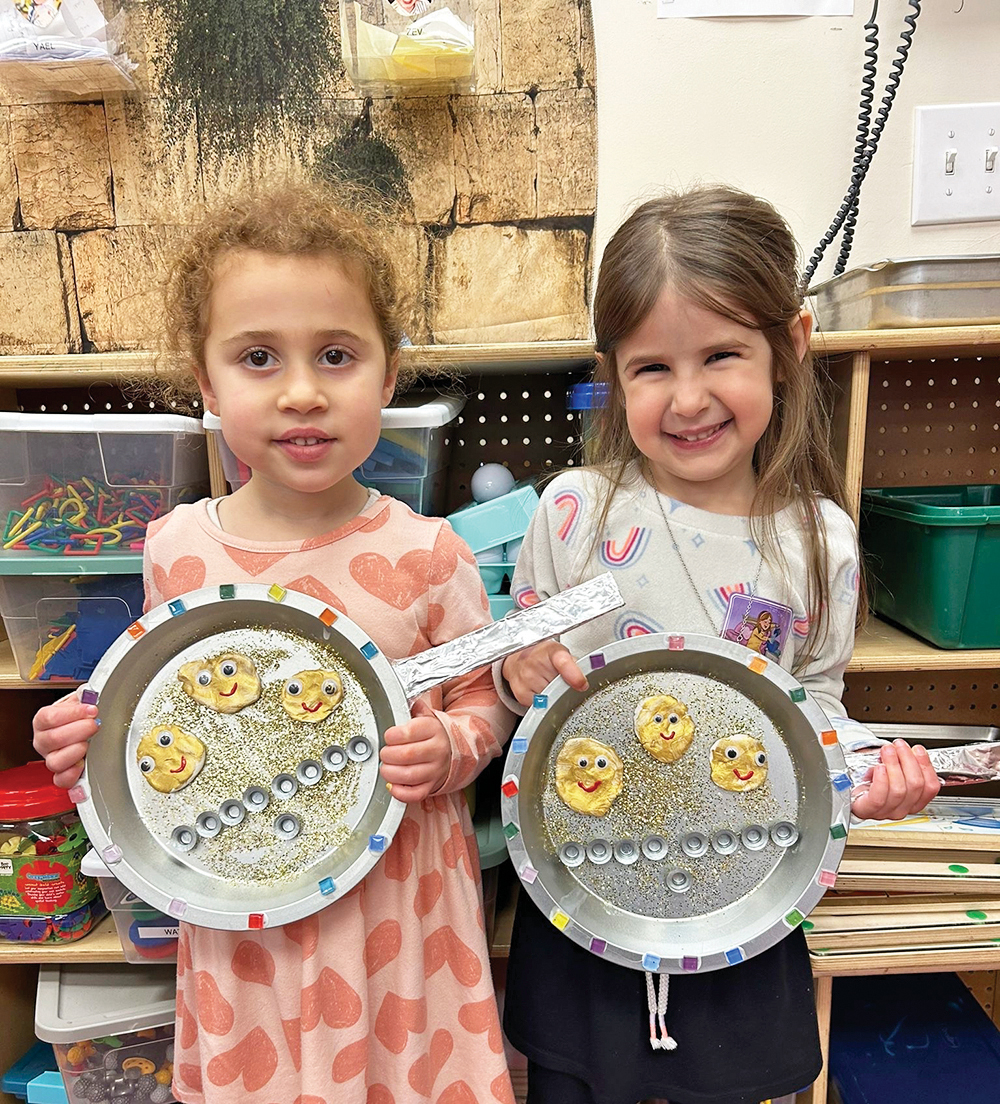Last year on Shabbat Parshat Mishpatim, the Agudas Yisrael Bircas Yaakov, a shul in the Passaic/Clifton community, hosted a Shabbat with singer Shulem Lemmer. It was a lovely Shabbat and people from all over the community came to listen to Shulem’s incredible voice and be uplifted by his singing. Our yeshiva annually hosts Rabbi Noach Orloweck, an international lecturer and educator, and the author of three books on parenting and education, for the Shabbat before Pesach. People look forward the whole year to that Shabbat. Many communities put together a special Shabbat program and bring in a noted rabbi or chazzan. It’s costly to engage someone for an entire Shabbat, but the host shul and community all benefit, making it a worthy investment.
Imagine a Shabbat with Moshe Rabbeinu as guest lecturer. Jews from all over the world would come!! Shabbat Parshat Shekalim is a Shabbat with Moshe Rabbeinu—and it’s free. The Midrash says that every time we read Parshat Shekalim, Moshe Rabbeinu comes to our shul/yeshiva. To understand this phenomenon, we need to analyze why Parshat Shekalim is read each year.
On Shabbat Parshat Shekalim, instead of reading the regular maftir, we read the portion in Ki Tisa where Hashem instructs Bnei Yisrael to each donate a half shekel. Rich or poor, we all give equally. The Gemara says we do this at the beginning of Adar to remind each person to donate his half shekel towards the communal purchase of animals for the twice-daily korban tamid. Everyone gave and everyone benefitted.
I have never seen anyone take out their checkbook after Shabbat Shekalim to donate to the “Korban Tamid Fund.” Unfortunately, we don’t have the Beit Hamikdash today and korbanot are not offered. So why the need to read this parsha, which announces the collection of the new fund?
The following midrash is the key to understanding the reason. Moshe says to Hashem, “What will happen after I pass away—no one will remember me?” Hashem responds “Don’t worry, everyone will remember you. Whenever the Jews read Parshat Shekalim, it will be as if you are in each shul and the reading will lift up each person, as it says: “Ki Tisa”—when you (referring to Moshe) will lift in the future, as opposed to writing, “sa” (An instruction to count/lift currently).
This midrash is quite perplexing. Did Moshe really feel no one would remember him? Every word of the Torah we learn and every mitzvah we perform is all thanks to Moshe, who brought down the Torah from Har Sinai!
The Bnei Yissaschar explains that Moshe was the quintessential leader. He made every Jew feel special. Each Jew has a letter in the Torah corresponding to his special character trait and mission which only he/she can accomplish. Moshe was asking how people will remember their own uniqueness when he’s no longer alive to point it out to them. Who will do this task in future generations?
Hashem’s response was that he, Moshe, will continue to lift up each person in klal Yisrael when the portion of Shekalim is read. He will remove their sadness and remind them they are special.
Parshat Shekalim describes a very different kind of fundraising campaign. Usually, the amount donated depends on the person’s financial ability. For example, in Charidy campaigns (an online fundraising service), a matching gifts feature is available, where a few wealthy donors double, triple or more, every pledge in order to “incentivize” smaller donors. But in the Shekalim campaign, everyone gave a half shekel—no matter how wealthy or poor, no matter a person’s financial stability or instability—because each person mattered. That was how Moshe elevated each Jew at that time.
Rav Avrohom Schorr quotes the Ramah M’Panah (an Italian Kabbalist) who says that every morning and afternoon, Eliyahu Hanavi brings a Korban Tamid in the Beit Hamikdash. He further asks how is this a valid KorbanTamid? Where is the communal fund aspect? The Ramah answers that perhaps Eliyahu has access to a hidden fund from the times of the actual Beit Hamikdash. However, the Chatam Sofer notes that the Korban Tamid needs to be purchased from a new fund collected each year!
Rav Schorr answers that in current times, the Korban Tamid is not a physical korban and is not purchased with actual money. Rather, it’s “funded” by each Jew realizing, through Parshat Shekalim, how unique he is and how he has something unique to contribute. Each and every Jew matters.
Our yeshiva is having a virtual annual dinner this Motzei Shabbat at 8 p.m. and the viewing link will appear on our website (pti.shulcloud.com) under our dinner information. The funds raised from this one event provide for more than 50% of the funding of our operating budget for the coming year, which will help ensure we can continue increasing our incredible shiurim and learning options. As we strive to raise the bar in learning, please consider partnering with the yeshiva by participating in our shiurim by Zoom (see pti.shulcloud.com) or in person, and by donating via http://pti.shulcloud.com/dinner. Your individual gift is the key to our success.
Rabbi Baruch Bodenheim is the associate rosh yeshiva of Passaic Torah Institute (PTI)/Yeshiva Ner Boruch, where he leads a multi-level Gemara learning program. PTI has attracted adult Jews of all ages from all over Northern New Jersey for its learning programs. Fees are not charged but any contributions are always welcome. Beyond PTI, Rabbi Bodenheim conducts a weekly Beit Midrash program with chavruta learning in Livingston plus a monthly group in West Caldwell. Rabbi Bodenheim can be reached at [email protected]. For more info about PTI and its Torah classes, visit www.pti.shulcloud.com













